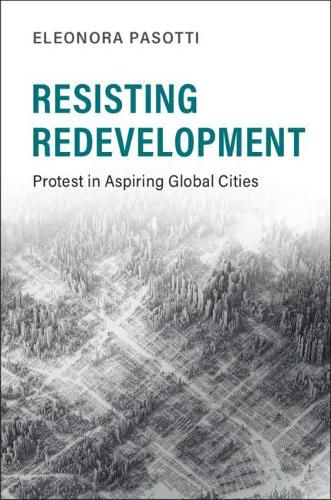Readings Newsletter
Become a Readings Member to make your shopping experience even easier.
Sign in or sign up for free!
You’re not far away from qualifying for FREE standard shipping within Australia
You’ve qualified for FREE standard shipping within Australia
The cart is loading…






The politics of urban development is one of the most enduring, central themes of urban politics. In Resisting Redevelopment, Eleonora Pasotti explores the forces that enable residents of ‘aspiring global cities,’ or economically competitive cities, to mobilize against gentrification and other forms of displacement, as well as what makes mobilizations successful. Scholars and activists alike will benefit from this one-of-a-kind comparative study. Impressive in its scope, this book examines twenty-nine protest campaigns over a decade in ten major cities across five continents, from Santiago to Seoul to Los Angeles. Pasotti sheds light on an approach that is both understudied and remarkably effective - the practice of successful organizers deploying ‘experiential tools,’ or events, social archives, neighborhood tours, and performances designed to attract participants and transform the protest site into the place to be. With this book, Pasotti promises to provide a creative and novel contribution to the literature of contentious politics.
$9.00 standard shipping within Australia
FREE standard shipping within Australia for orders over $100.00
Express & International shipping calculated at checkout
The politics of urban development is one of the most enduring, central themes of urban politics. In Resisting Redevelopment, Eleonora Pasotti explores the forces that enable residents of ‘aspiring global cities,’ or economically competitive cities, to mobilize against gentrification and other forms of displacement, as well as what makes mobilizations successful. Scholars and activists alike will benefit from this one-of-a-kind comparative study. Impressive in its scope, this book examines twenty-nine protest campaigns over a decade in ten major cities across five continents, from Santiago to Seoul to Los Angeles. Pasotti sheds light on an approach that is both understudied and remarkably effective - the practice of successful organizers deploying ‘experiential tools,’ or events, social archives, neighborhood tours, and performances designed to attract participants and transform the protest site into the place to be. With this book, Pasotti promises to provide a creative and novel contribution to the literature of contentious politics.